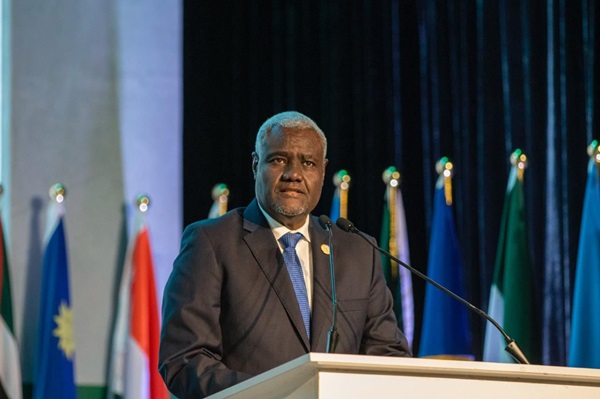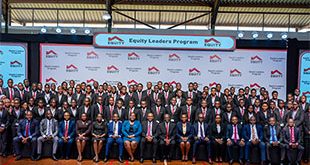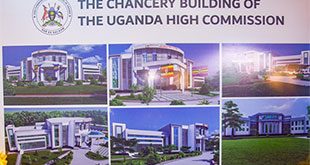
Addis Ababa, Ethiopia | THE INDEPENDENT | Dozens of finance and foreign ministers met this week in Ethiopia to call for radical action to reform the international financial architecture. The reforms are required to enable international institutions to and channel trillions of dollars towards sustainable development in Africa and other developing countries.
Nine years after the historic agreement on financing for development, the Addis Ababa Action Agenda, United Nations Member States once again convened in Addis Ababa, Ethiopia, to renew the push for sustainable development financing and the Sustainable Development Goals (SDGs).
“Faced with sky-high debt burdens and costs of capital, developing countries have limited prospects of financing the Sustainable Development Goals,” stated António Guterres, Secretary-General of the United Nations in a video message to the conference.
He continued: “The Fourth International Conference on Financing for Development provides a unique opportunity to tackle these challenges head-on. It opens the door for world leaders to adopt ambitious reforms to deliver affordable long-term financing at scale – and deliver the SDG Stimulus. And it presents a unique opportunity to reform an international financial system that is outdated, dysfunctional and unfair.”
After four years of a series of global shocks – including the COVID-19 pandemic, geopolitical conflicts and economic instability – the SDG financing gap for developing countries has ballooned to USD 4 trillion annually.
The financing gap and accompanying debt challenges have worsened poverty and inequality, putting the world off track to meet international targets set in 2015. Leaders from Africa and other developing countries have sounded the call for reform of the financial architecture loudest.
Last year Kenyan President, William Ruto said the biggest contributor to debt distress in Africa is high interest rates on loans from the World Bank.
“We pay five times more than others. This means the architecture is set up in a manner that if you borrow, it will be difficult for you to pay,” he said “And that is why we need a very candid conversation. And we are saying this is all honesty around how do we get concessional funding, how do we pay as much as others are paying. How do we get Africa away from paying five times more?”
Uganda is among the countries faced with debt distress. According to the December 2023 report from the Bank of Uganda, escalating debt servicing costs were straining tax revenue collection, with UGX 32 out of every UGX 100 collected going towards debt service.
The Bank of Uganda rightly projected that external debt servicing would account for 35 percent of GDP in 2024/2025.
The findings indicated that Each of the 45 million Ugandans is now indebted to the tune of UGX 2.5 million. Rising public debt coupled with growing debt servicing costs, stagnating domestic tax revenues, and declining export revenues are putting Uganda in debt distress and at greater risk of debt crisis.
According to a recent International Debt Report by the World Bank, “record debt levels coupled with high-interest rates have set many countries on a path to crisis”.
The report further noted that “every quarter that interest rates stay high, results in developing countries becoming distressed – and facing the tough choice of servicing their debts or investing in public health, education or infrastructure”
The World Bank said in a report on Uganda’s debt crisis “While most of the existing stock of external public debt is on concessional terms, the semi-concessional component has been on the rise in recent years. Highly concessional loans from the IMF, the International Development Association (IDA) and the African Development Fund (ADF) account for half of the external debt portfolio, which mainly drives the difference between the nominal value of public debt and its present value.
Other concessional creditors include the International Fund for Agricultural Development (IFAD), the Arab Bank for Economic Development in Africa (BADEA), the Organization of the Petroleum Exporting Countries (OPEC) fund, and some bilateral Paris and non-Paris club creditors.
The challenges countries face in raising sufficient resources have laid bare structural flaws in the international financial architecture and accelerated calls for reforms. Li Junhua, the Under-Secretary-General of the United Nations Department of Economic and Social Affairs (UN DESA), and Secretary-General of the FfD4 conference said
“The ministers, experts and other stakeholders that gathered here in Addis Ababa made clear that we cannot continue with business as usual and must dramatically reshape the international financial system to ensure investment where it is most needed.”
He said the meeting provided the opportunity to take stock of the steps to be taken to fill the financing gaps and meet the development needs of all people around the world.
Ministers and global experts unveiled proposals for reforming the rules and governance of international taxation, and for addressing countries facing debt crises, including through new international mechanisms to resolve situations of sovereign debt default.
Claver Gatete, Executive Secretary of the United Nations Economic Commission for Africa said the international financial architecture created nearly 80 years ago needs to be reformed to respond to the most pressing challenges of African countries more effectively and inclusively.
“African countries are taking a leadership role in pressing for changes to global tax and financial systems, and they are clear that the international system needs to better support their sustainable development aspirations,” he said.
The Preparatory Committee meeting brought together representatives of at least 103 countries, including high-level representatives, as well as representatives of multilateral development banks, United Nations system entities and other intergovernmental organizations, the private sector and non-governmental organizations.
Almost 800 participants discussed the full range of financing issues, including debt, taxation, trade, private finance, development cooperation, technology, and data.
The five-day meeting was the first of four preparatory meetings to be held ahead of the Fourth International Conference on Financing for Development (FfD4) Conference taking place in Sevilla, Spain, in 2025. The FfD4 has a mandate from the UN General Assembly to support reform of the international financial architecture.
Subsequent sessions of the Preparatory Committee will be held in New York in December 2024 and in February and April 2025. A one-day intersessional multi-stakeholder hearing will also be convened in New York in October 2024 as part of the preparatory process for the Conference.
***
URN
 The Independent Uganda: You get the Truth we Pay the Price
The Independent Uganda: You get the Truth we Pay the Price



